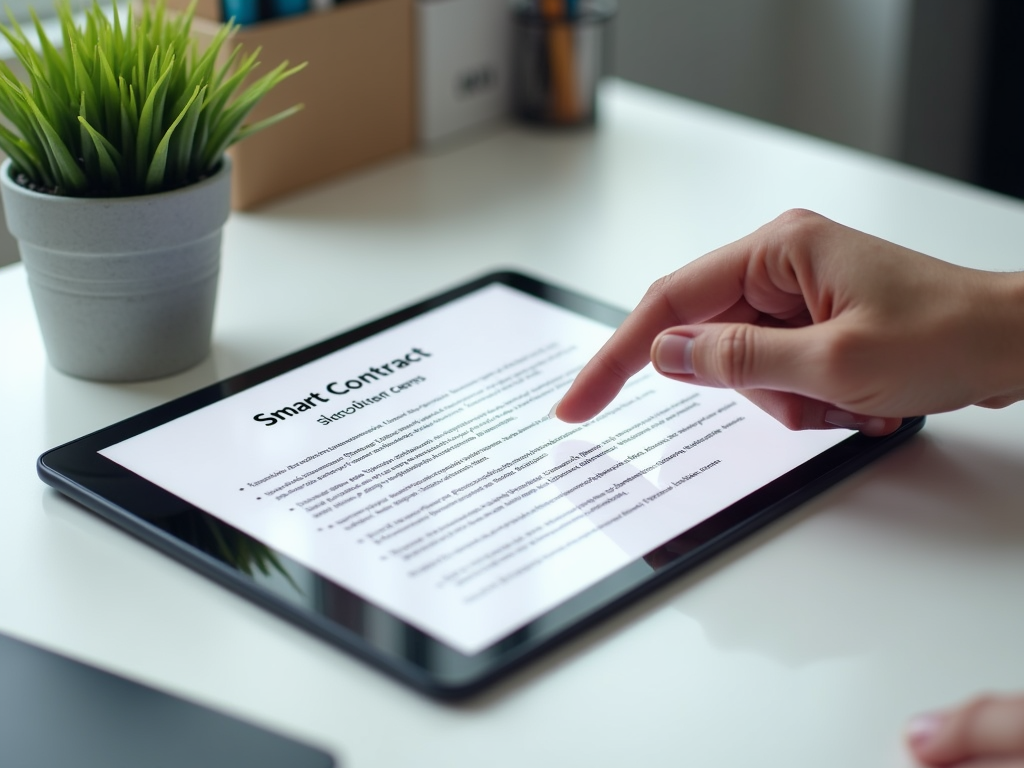Smart contracts have emerged as a revolutionary technology within the realm of property transactions in Dubai, streamlining processes and enhancing security. They are self-executing contracts with the terms of the agreement directly written into code, offering a level of transparency and efficiency previously unattainable in real estate dealings. This article explores how smart contracts are reshaping property transactions in Dubai, elucidating their benefits, applications, and the future they herald for the market.
Understanding Smart Contracts

Smart contracts are digital agreements that automatically execute actions when predefined conditions are met. In Dubai’s dynamic real estate market, where speed and accuracy are paramount, these contracts can significantly expedite transaction processes. Here are some key features that define smart contracts:
- Automation: Smart contracts reduce the need for intermediaries, automating processes such as fund transfers and document verification.
- Transparency: Every transaction is recorded on a blockchain, ensuring all parties can verify the contract’s terms and execution history.
- Security: The cryptographic nature of blockchain makes smart contracts more secure against fraud and unauthorized alterations.
- Cost-effectiveness: By minimizing the involvement of third parties, the costs associated with transactions can be significantly reduced.
- Efficiency: Transactions can close much faster compared to traditional methods due to automated processes.
Benefits of Smart Contracts in Property Transactions

Dubai’s property market significantly benefits from the integration of smart contracts. The advantages of using this technology in real estate transactions include the following:
- Reduced Transaction Time: Smart contracts eliminate paperwork delays, allowing for quicker completion of sales and purchases.
- Minimized Costs: With fewer intermediaries involved, buyers and sellers can save significantly on transaction fees.
- Increased Trust: Transparency provided by the blockchain reassures all parties of fairness and reduces disputes.
- Enhanced Security: Smart contracts are immutable, meaning once executed, they cannot be altered or tampered with, providing a safe environment for transactions.
- Global Accessibility: Investors from around the world can easily engage in Dubai’s property market without the need for physical presence, facilitated by smart contracts.
Applications of Smart Contracts in Dubai’s Real Estate Sector
Smart contracts can be utilized in numerous ways throughout Dubai’s real estate sector. Their versatility allows for various applications, including:
- Buying and Selling: Facilitate seamless transactions by automating fund transfers and property title transfers.
- Leasing: Manage rental agreements, ensuring rent payments and lease terms are automatically enforced.
- Real Estate Management: Automate processes such as maintenance requests and payment dispersals for property management companies.
- Escrow Services: Serve as a secure way to hold funds in escrow until all conditions are met, reducing the need for traditional escrow agents.
The Future of Smart Contracts in Dubai’s Real Estate Market
The future of smart contracts in Dubai’s real estate transactions looks promising as local authorities and businesses begin to embrace blockchain technology. Major developments are underway, including initiatives by the Dubai Land Department to integrate smart contracts into their systems fully. This will likely lead to:
- Regularization: Establishment of frameworks to regulate smart contracts within real estate to protect users.
- Wider Adoption: More real estate companies implementing smart contracts as the benefits become increasingly apparent.
- Innovation: Continuous improvement of technology, leading to smarter and more intuitive contract capabilities.
Conclusion
Smart contracts represent a transformative force in Dubai’s property market, providing enhanced security, reduced costs, and increased efficiency. As the region embraces this innovative technology, the expectations are that real estate transactions will become faster and more transparent, attracting both local and foreign investors. The journey towards a fully integrated smart contract landscape in Dubai is just beginning, yet its potential to revolutionize the industry is already clear.
Frequently Asked Questions
1. What are smart contracts?
Smart contracts are self-executing contracts where the terms are directly written into lines of code on a blockchain, allowing for automatic execution when conditions are met.
2. How do smart contracts improve the real estate transaction process?
They improve the process by automating transactions, reducing reliance on intermediaries, minimizing costs, and enhancing security and transparency.
3. Are smart contracts legally binding in Dubai?
Yes, smart contracts are recognized as legally binding as long as they meet the legal requirements set forth by the jurisdiction, including consent and clear terms.
4. Can foreign investors use smart contracts in Dubai’s property market?
Absolutely, smart contracts facilitate global engagement, allowing foreign investors to transact conveniently and securely without needing to be physically present.
5. What is the role of the Dubai Land Department in relation to smart contracts?
The Dubai Land Department is actively involved in integrating smart contracts into their systems to ensure transparency and efficiency in property transactions within Dubai.



